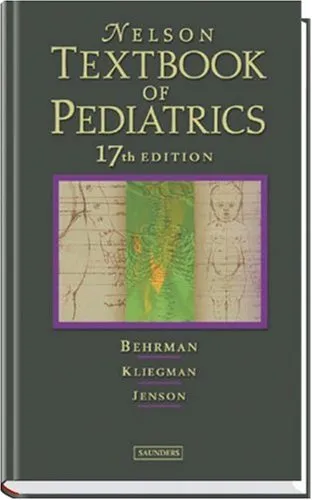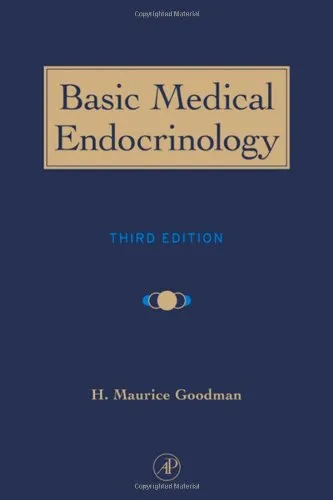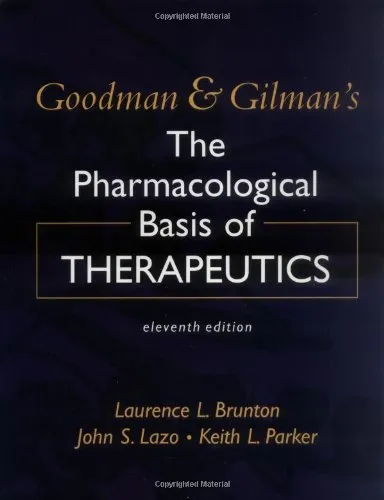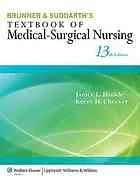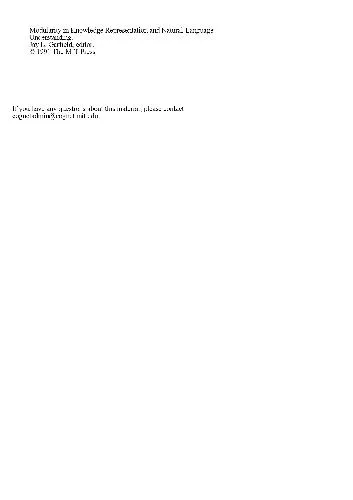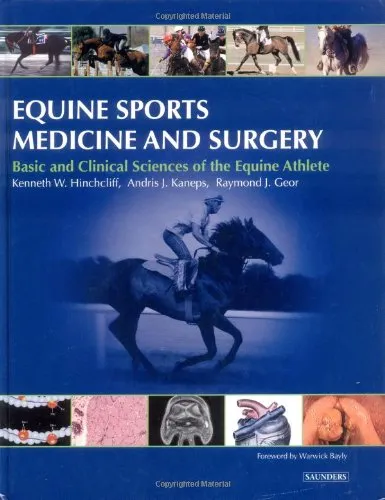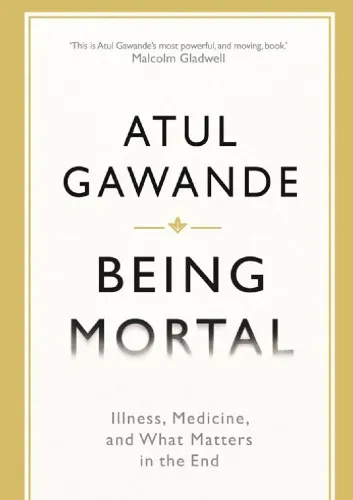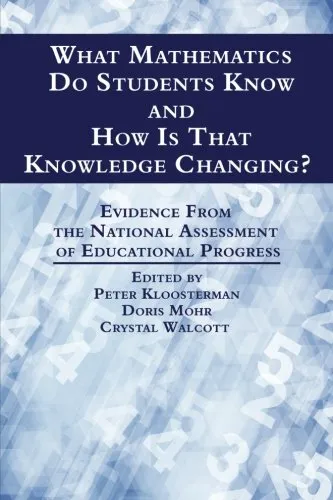Aids Rhetoric and Medical Knowledge
4.0
بر اساس نظر کاربران

شما میتونید سوالاتتون در باره کتاب رو از هوش مصنوعیش بعد از ورود بپرسید
هر دانلود یا پرسش از هوش مصنوعی 2 امتیاز لازم دارد، برای بدست آوردن امتیاز رایگان، به صفحه ی راهنمای امتیازات سر بزنید و یک سری کار ارزشمند انجام بدینکتاب های مرتبط:
مقدمه
کتاب "Aids Rhetoric and Medical Knowledge" اثری است که به بررسی نحوه تعامل ارتباطات علمی، گفتمان اجتماعی و دانش پزشکی حاکم در دوره رشد اپیدمی AIDS میپردازد. این کتاب تلاش دارد تا تأثیر گفتمانهای اجتماعی، فرهنگی و رسانههای گروهی را بر چگونگی شکلگیری واقعیتهای پزشکی و سیاستهای درمانی به تصویر بکشد. اثر حاضر نشان میدهد چگونه زبان، رسانه و برداشتهای فرهنگی بر گروههای مختلف اجتماعی اثرگذار بوده و روایتهای پزشکی پیرامون HIV/AIDS را به چالش کشیدهاند.
نوشته من، «الکس پردا»، این کتاب به خصوص خطاب به دانشجویان، پژوهشگران، و متخصصانی است که در حوزههای علوم اجتماعی، پزشکی و ارتباطات مطالعه میکنند. در ادامه، خلاصهای جامع از کتاب و پیامهای کلیدی آن مطرح شده است.
خلاصه جامعی از کتاب
کتاب "Aids Rhetoric and Medical Knowledge" به شش بخش اصلی تقسیم شده است و هر بخش به جنبهای خاص از نحوه شکل دادن مفهوم HIV/AIDS میپردازد. در این اثر، من تحلیل میکنم که رسانهها و خطابات عمومی چگونه مباحث علمی مرتبط با این بیماری را دریافت کردهاند و به چه نحوی این گفتمانها تأثیر مستقیمی بر تعیین سیاستگذاریها و چارچوبهای درمانی گذاشتهاند.
یکی از محورهای اصلی کتاب، بررسی تأثیر زبان علمی و قدرت اجتماعی بر نحوه بازنمایی بیماری HIV/AIDS است. همچنین، این کتاب نشان میدهد که چگونه واکنشهای اجتماعی – از ترس گرفته تا همدلی – ابزاری برای سیاستگذاری و روایتپردازی اجتماعی شده است. این تجزیه و تحلیل میانرشتهای نمایانگر نحوه تعامل عوامل فرهنگی با علوم زیستی و پزشکی است.
پیامهای کلیدی کتاب
- زبان و گفتمان عمومی نقش کلیدی در شکلدهی دانش پزشکی و سیاستهای درمانی دارند.
- نحوه بازنمایی رسانهای HIV/AIDS نه تنها علم، بلکه روابط اجتماعی و سیاستگذاری را نیز تحت تأثیر قرار داده است.
- گفتمانهای پزشکی نمیتوانند و نباید جدا از فرهنگ، تاریخ و شرایط اجتماعی مطالعه شوند.
- اپیدمیها تنها مسئلهای زیستی نیستند، بلکه یک بحران اجتماعی، اقتصادی و فرهنگی نیز محسوب میشوند.
نقلقولهای مشهور از کتاب
"Understanding AIDS requires an understanding not just of the virus, but of the social constructs and rhetoric that have framed its story."
"The interaction between science and society is a complex dance, where neither leads nor follows, but together they shape the narrative."
چرا این کتاب مهم است؟
کتاب "Aids Rhetoric and Medical Knowledge" اساسیترین سوالات درباره شکاف بین دانش پزشکی و درک اجتماعی از اپیدمیها را مطرح میکند. از آنجا که HIV/AIDS همچنان یکی از بحثبرانگیزترین موضوعات سلامت عمومی است، مطالعه آن از چشمانداز تاریخی و گفتمانی میتواند به شکلگیری درک عمیقتر نسبت به این بحران کمک کند.
این کتاب کمک میکند که نقش رسانهها، رفتارهای اجتماعی و برداشتهای فرهنگی را در درک علم پزشکی بهتر درک کنیم. این اثر هم برای متخصصان و هم برای عامه مردم، که خواهان پاسخهای دقیق و تحلیلی هستند، ارزشمند است.
Introduction to Aids Rhetoric and Medical Knowledge
In Aids Rhetoric and Medical Knowledge, Alex Preda delves into the complex intersections of language, culture, and science that have shaped the global understanding of the AIDS epidemic. This book is neither a simple chronological narration nor a conventional medical analysis—it is an exploration of how rhetoric and knowledge production influenced the way society comprehended and responded to one of the gravest public health crises of the 20th century.
Published to challenge preconceived notions about medical discourse, this book addresses pivotal questions: How did language affect the construction of meanings around AIDS? What role did medical knowledge play in framing public perceptions of the disease? How were social attitudes toward individuals and communities affected by these narratives? By unpacking these questions, Aids Rhetoric and Medical Knowledge invites readers on an intellectual journey to better understand how the power of rhetoric intersects with the tenets of science.
Detailed Summary of the Book
The book begins by examining the emergence of AIDS in the late 20th century, situating its impact within a broader cultural and sociopolitical framework. Alex Preda highlights how the medical community grappled with uncharted territory, attempting to define a virus they barely understood. At the same time, public discourse, shaped by media, politics, and advocacy groups, engaged in constructing a narrative around the disease, its causes, and the people most affected by it.
Drawing upon a wealth of interdisciplinary sources, Aids Rhetoric and Medical Knowledge presents a nuanced argument: the language surrounding AIDS not only shaped public policy and medical practices but also reflected broader societal biases, fears, and prejudices. Whether in clinical descriptions, political speeches, or media depictions, rhetoric both illuminated and obscured the nature of the epidemic.
Key sections of the book focus on the stigmatization of marginalized communities, especially LGBTQ+ individuals and intravenous drug users, and how this stigma was often exacerbated by public health campaigns and policy debates. The book also dives into medical science’s role in framing the epidemic: from the initial uncertainty about its etiology to breakthroughs like antiretroviral therapies. These scientific advancements were catalysts for hope but were accompanied by their own rhetorical shifts.
Ultimately, the book reveals how rhetoric was not merely an accessory to understanding AIDS but an integral part of the process whereby knowledge about the disease was constructed, disseminated, and critiqued. Through this exploration, Preda invites readers to reflect on how biases embedded within language can perpetuate inequities and shape the trajectory of a public health crisis.
Key Takeaways
- Rhetoric plays a critical role in shaping medical knowledge and public responses to health crises.
- The stigmatization of marginalized groups often stems from how language portrays them amidst crises.
- Scientific progress is deeply intertwined with societal narratives, and medical breakthroughs do not occur in isolation from cultural contexts.
- Understanding the role of rhetoric in medical discourse can help us approach contemporary health challenges with greater awareness and equity.
Famous Quotes from the Book
"Language is the vessel through which knowledge travels, but it is never neutral—its cargo reflects the culture, fears, and hopes of its time."
"The history of AIDS is not just the history of a virus—it is the history of stories told about the virus and the people it affected."
Why This Book Matters
Understanding the role of rhetoric in medicine has never been more critical than in today’s world, where global health crises continually emerge. Aids Rhetoric and Medical Knowledge offers a foundational lens through which readers can examine current issues like pandemics, health misinformation, and vaccine hesitancy. It challenges us to scrutinize not just the facts presented in public health discussions but the words and narratives used to deliver those facts.
This book is a must-read for anyone seeking to comprehend how society interacts with medicine and science during crises. It lays bare the mechanisms by which language can either empower or marginalize, inform or mislead. At its core, it is a call for greater critical inquiry into how we use words to understand and combat disease. For scholars, policymakers, healthcare professionals, and the general public, it invites reflection and action in creating a more equitable world when medical knowledge is deployed.
دانلود رایگان مستقیم
شما میتونید سوالاتتون در باره کتاب رو از هوش مصنوعیش بعد از ورود بپرسید
دسترسی به کتابها از طریق پلتفرمهای قانونی و کتابخانههای عمومی نه تنها از حقوق نویسندگان و ناشران حمایت میکند، بلکه به پایداری فرهنگ کتابخوانی نیز کمک میرساند. پیش از دانلود، لحظهای به بررسی این گزینهها فکر کنید.
این کتاب رو در پلتفرم های دیگه ببینید
WorldCat به شما کمک میکنه تا کتاب ها رو در کتابخانه های سراسر دنیا پیدا کنید
امتیازها، نظرات تخصصی و صحبت ها درباره کتاب را در Goodreads ببینید
کتابهای کمیاب یا دست دوم را در AbeBooks پیدا کنید و بخرید
1260
بازدید4.0
امتیاز0
نظر98%
رضایتنظرات:
4.0
بر اساس 0 نظر کاربران
Questions & Answers
Ask questions about this book or help others by answering
No questions yet. Be the first to ask!
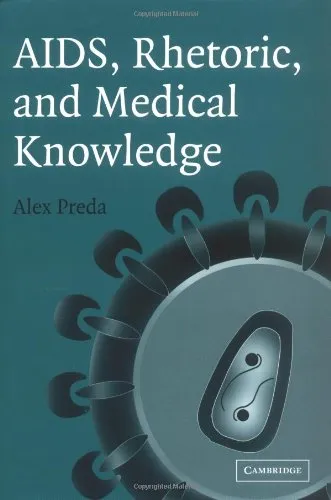

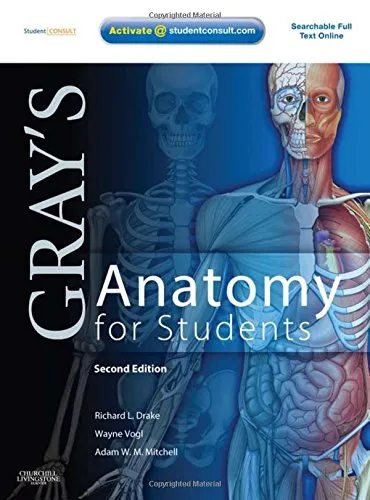

![Gray’s Anatomy for Students [with Student Consult Online Access]](https://s3.refhub.ir/images/thumb/Gray_s_Anatomy_for_Students__with_Student_Con_2727_FngnAl0.webp)
